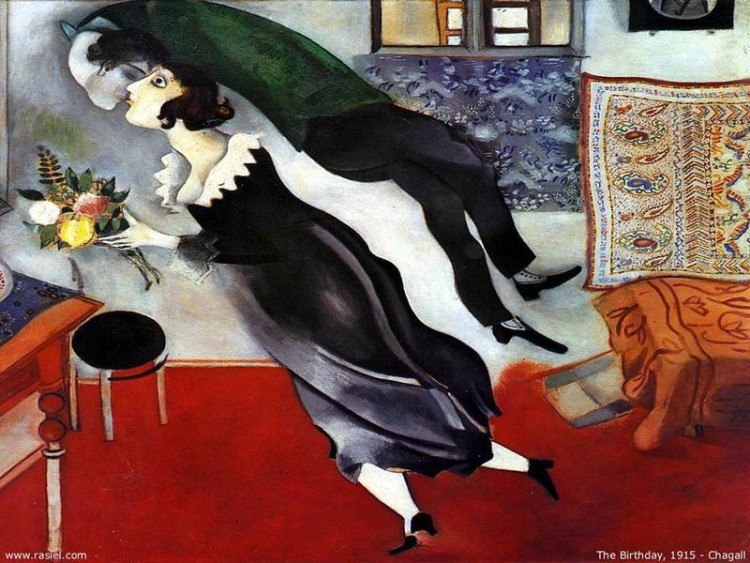To Those With Chronic Illness Repeatedly Told ‘Take Care of Yourself'
As a child, before my diagnoses with postural orthostatic tachycardia syndrome (POTS) and Berger’s disease, I remember the pure glee of Valentine’s Day — creating handmade cards with silver paper and lace, filling them with original poems or Shakespeare, and haunting the mailbox for cards I would receive from overseas pen pals in Prague or Japan. In that life, creativity and connection were easier to find.
This February, as a woman in the thick of simply managing her chronic illness, that glittery aura of a healthy childhood seems quite dim. I suspect that many of you, whether you’re a patient, caregiver or friend, will understand the kind of monotonous fog that surrounds long spans of time spent merely hanging on.
For me, that “hanging on” often looks like re-grieving my own small losses each morning, and re-finding a place of acceptance and peace each night. With my constant dizziness upon walking, I miss my former life as a dancer. With my swollen face and feet, I remember what date night used to feel like without them. With my POTS-induced cognitive dysfunction symptoms, I mourn the feeling of solace I used to take in reading and writing.
In my local chronic illness community, I hear strong but tired friends echo similar concerns. Some use dark humor to situate their physical difficulties within networks of family and friends (memes are great for that purpose). Some reach out to me with heart-on-the-sleeve messages in closed forums, texts or phone calls, saying that they are still symptomatic, still tough, still weary.
While I listen to and affirm those feelings as valid (I have them and want that affirmation, too), I rarely have any advice. Even a short experience with intractable chronic illness seems to zap a person’s taste for giving and receiving advice concerning that illness. And I feel that’s only right: Each person has to work out their own suffering in their own way, to take care of themselves as best they can.
But, to be honest, that’s precisely where I’ve been feeling stuck lately — the gray limbo between “dealing” (my term for getting by) and taking care of myself.
Because let’s be real: With chronic illness, someone is always telling you to take care of yourself — your mom, your doctor, your partner, your biofeedback therapist, your nutritionist, this or that specialist, your own inner “good patient” voice and so on. People will say to “love yourself,” “be kind to yourself,” or — a little gem I recently heard — even “date yourself.”
While each of these activities may — and can, even with chronic illness — be part of a healing journey toward self-compassion, they can become a serious chore. Speaking for myself, I have felt recently that spending my days “taking care of myself” can often reach the level of absurdity. There’s always another symptom to manage, blood test to have drawn, meal I could have chosen better, day of rest I could or should take.
Part of that thought loop is my tiredness speaking. But I think there’s something to be said for the sense of absurdity (and loneliness, if we’re honest enough to say it) that comes from the kind of self-focus that chronic illness necessitates. We (or at least I) want to be more involved in the world of activity than our current health situation may allow. We (or I) sometimes grow tired of daily functionality — or survival — being dependent on our ability to perceive, assess and manage chronic illness symptoms in conjunction with our health team. Even writing that sentence wears me out!
Consider the nasty paradox, then, between the repeated advice to “take care of yourself” and the need for inner self-care that arises from the continuous need to “take care” of one’s own chronic illness. It’s dizzying!
So here’s my point: I was astonished today by a simple line from Leo Tolstoy’s marvelous little short story, “What Men Live By.”
I want to offer the following short phrase not as advice, but as a gift. For me, reading it was like a Valentine out of the past, filling me with that same girlhood excitement I used to feel on the holiday.
It’s just this (with some gender inclusion Tolstoy didn’t add): “I have learnt that all [people] live not by care for themselves but by love.”
While self-care is both good and necessary for chronic illness folks, and for everyone, it’s relieving and invigorating to remember that it’s not all that keeps us going. But love is.

The Mighty is asking the following: Share a powerful moment you or a loved one has had with a public figure. Or, write a letter to a public figure who you feel has helped you or a loved one through his or her work. If you’d like to participate, please send a blog post to community@themighty.com. Please include a photo for the piece, a photo of yourself and 1-2 sentence bio. Check out our Submit a Story page for more about our submission guidelines.
Lead photo source: Thinkstock Images
